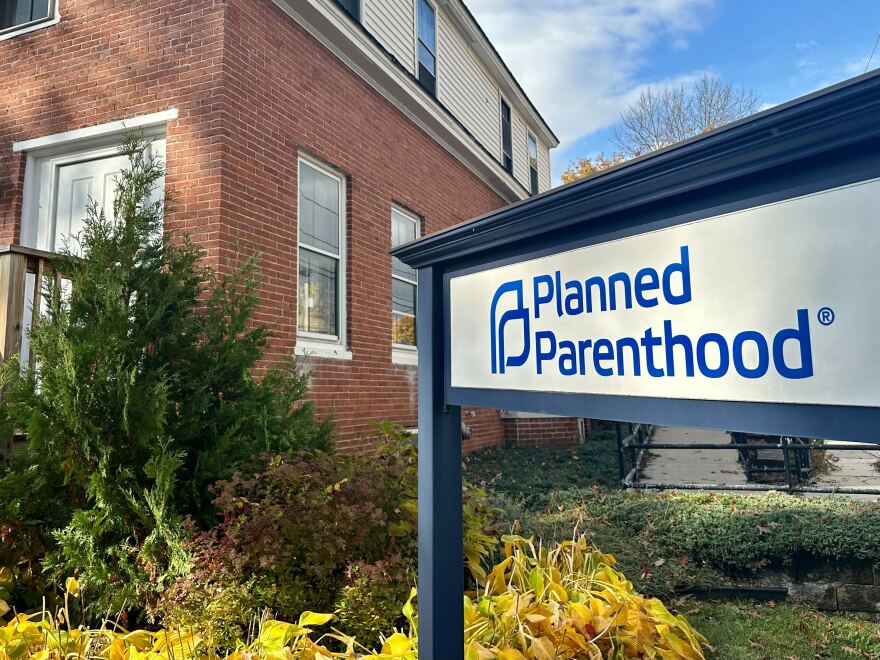New Medicaid Cuts Threaten Planned Parenthood Services in NH

Patients seeking care at Planned Parenthood centers in New Hampshire may face significant challenges as a new federal spending bill prohibits Medicaid payments to abortion providers. This change could limit access to vital health services for many individuals, particularly those relying on Medicaid coverage.
Planned Parenthood of Northern New England serves approximately 8,000 patients annually across New England, with about 20 percent of those patients in New Hampshire covered by Medicaid. The organization provides a variety of health services, including preventative screenings, primary care, birth control, and menopause care. While the organization may still treat Medicaid patients, the ban means they will not receive government reimbursement for any services rendered.
As of now, a federal judge in Massachusetts has temporarily paused the enforcement of this ban, with a hearing scheduled for July 21, 2023. Nonetheless, officials at Planned Parenthood express concern about the uncertainty surrounding future funding.
Nicole Clegg, president and CEO of Planned Parenthood of Northern New England, criticized the funding cuts, asserting that they are an attempt to restrict abortion access. “Passing the reconciliation bill shows that they’re willing to do whatever it takes to achieve this goal, even if it means jeopardizing the health and lives of our community’s most vulnerable,” Clegg stated. “Without access to the health care that Planned Parenthood provides to Medicaid patients, cancers will go undetected, STIs will be left untreated, and unplanned pregnancies will rise.”
The potential loss of Medicaid reimbursement adds further financial strain to Planned Parenthood in New Hampshire, especially after the organization lost Title X funding earlier this year due to actions taken by the Trump administration. Kayla Montgomery, vice president of public affairs for the New Hampshire chapter, pointed out that this isn’t the first instance of funding cuts affecting services.
In 2011, the state Executive Council blocked the state’s Planned Parenthood from receiving Title X funding, a decision that caught many by surprise. At the time, then-Governor Maggie Hassan collaborated with the Obama administration to ensure that Planned Parenthood became a direct grantee in New Hampshire, allowing the organization to continue its essential services.
The landscape shifted again in 2019 when the Trump administration enacted a domestic gag rule, preventing any medical provider that offers abortion services from receiving Title X funds nationwide. Planned Parenthood opted to forgo these funds to maintain its ability to provide abortion services to patients. Following the inauguration of President Joe Biden, the administration swiftly reversed the Trump-era restrictions in April 2021.
The recent Medicaid cuts pose additional challenges, as reimbursement rates in New Hampshire are already among the lowest in the region. Montgomery expressed disappointment that the new budget did not improve these rates. “We were hoping to see higher Medicaid reimbursement rates with this budget, but they stayed flat. So it’s a tremendous, tremendous loss for New Hampshire and for Planned Parenthood New Hampshire,” she explained.
Montgomery highlighted the disparity in reimbursement rates across neighboring states, noting that an IUD insertion could be reimbursed at nearly double the rate in Maine compared to New Hampshire. This situation places additional pressure on healthcare providers and could lead to closures.
“If the temporary block against the cut to Medicaid reimbursement does not extend beyond 14 days, Planned Parenthood will have to seek millions of dollars in funding from donors and from patients accessing their services,” Montgomery warned. “Healthcare should not be run by philanthropy. We’re talking about the state not having any sort of stake in the ground on public health when it comes to the biggest provider of sexual reproductive health in the state. It is a real shame because the state should have a stake here.”






